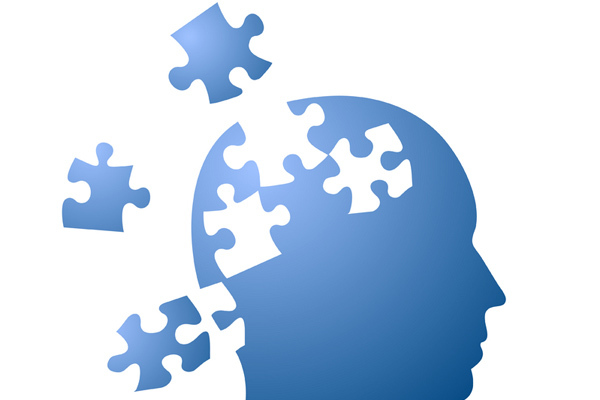New Alzheimer's Criteria Would Change Diagnosis for Millions

Almost everyone currently diagnosed with a mild form of Alzheimer's disease would be downgraded to not having the condition, if new proposed criteria for the diagnosis of cognitive problems were applied, a new study shows.
Instead, people diagnosed as having "very mild" and "mild" Alzheimer's disease would be reclassified as having mild cognitive impairment (MCI), which is currently recognized as an intermittent stage between the normal loss of mental function that comes with age and the development of dementia.
The new criteria broaden the definition of mild cognitive impairment, and this will cause confusion when doctors try to diagnose MCI and Alzheimer's, said study researcher Dr. John Morris, a professor of neurology at Washington University School of Medicine in St. Louis.
Moreover, the new criteria highlight the fallacy of thinking about MCI and Alzheimer's as different entities, Morris said.
"[The] idea that there is an MCI stage, distinct from very early Alzheimer's disease, is artificial," Morris said. "It really is the same disease process."
Instead of widening the criteria so more people are diagnosed with MCI, researchers should do the opposite — try to figure how to winnow down the group of patients with MCI to find those who will go on to develop Alzheimer's disease, Morris said. In fact, if a patient's memory and thinking troubles are due to early Alzheimer's, and not due to depression or medication use, "We can just call it very early Alzheimer's disease. There's no need to have this distinction," Morris said.
The report is published online today (Feb. 6) in the Archives of Neurology.
Sign up for the Live Science daily newsletter now
Get the world’s most fascinating discoveries delivered straight to your inbox.
Alzheimer's continuum
Previously, mild cognitive impairment was defined as a decline in cognitive function — which could include memory and language problems — that do not interfere with everyday activities.
But the new criteria, proposed by the National Institute on Aging and the Alzheimer's Association, state that people with MCI have "independence in functional activities."
This could mean that, as long as a person can do everyday activities by themselves, they would be classified as having MCI, even if they had mild problems with activities such as shopping, paying bills and cooking, Morris said. (In fact, having mild problems with such activities is a criterion for dementia, Morris said.)
To assess what the impact of the new criteria would be on patients diagnosed with Alzheimer's disease, Morris analyzed information from 17,535 people who had been classified as having normal cognition, MCI or Alzheimer's disease. Participants were classified based on how well they could function performing a variety of activities, including preparing meals and taking mediation.
The results showed 99.8 percent of patients currently diagnosed with very mild Alzheimer's disease, and 92.7 percent of those diagnosed with mild Alzheimer's disease, would be reclassified as having MCI based on the revised criteria.
Considering about 2.5 million people have very mild Alzheimer's disease, the findings suggest that, very roughly, about 2.2 million people could be reclassified as having MCI (although this calculation is speculative), Morris said.
Need for biomarkers
William Thies, chief medical and scientific officer at the Alzheimer's Association, said the proposed criteria for MCI are less than a year old, and experts will likely continue to discuss and tweak them in the years to come.
"We are really now working on trying to identify exactly where people will fit in the continuum of Alzheimer's disease," Thies said.
Thies agreed the disease is a continuous process, and said you could likely not tell the difference between someone with the most severe case of MCI and someone with the mildest case of Alzheimer's disease.
But Thies said he does not think the new criteria will create much confusion. They are intended to be used by experts in the field, some of whom have already been thinking of MCI in the manner described by the new criteria. And others who are very conservative when it comes to diagnosing people with Alzheimer's disease likely won't change their ways, he said.
Thies also said the field should move toward identifying which patients with MCI are actually in the early stages of Alzheimer's disease. This could be done once there are well defined biomarkers for the condition, Thies said.
While the field is moving toward this goal, it will likely be a while before biomarkers are routinely used by doctors to diagnose patients, he said.
Pass it on: Identification of biomarkers for Alzheimer's disease will make it easier to diagnosis the condition in its early stages.
This story was provided by MyHealthNewsDaily, a sister site to LiveScience. Follow MyHealthNewsDaily staff writer Rachael Rettner on Twitter @RachaelRettner. Find us on Facebook.

Rachael is a Live Science contributor, and was a former channel editor and senior writer for Live Science between 2010 and 2022. She has a master's degree in journalism from New York University's Science, Health and Environmental Reporting Program. She also holds a B.S. in molecular biology and an M.S. in biology from the University of California, San Diego. Her work has appeared in Scienceline, The Washington Post and Scientific American.









